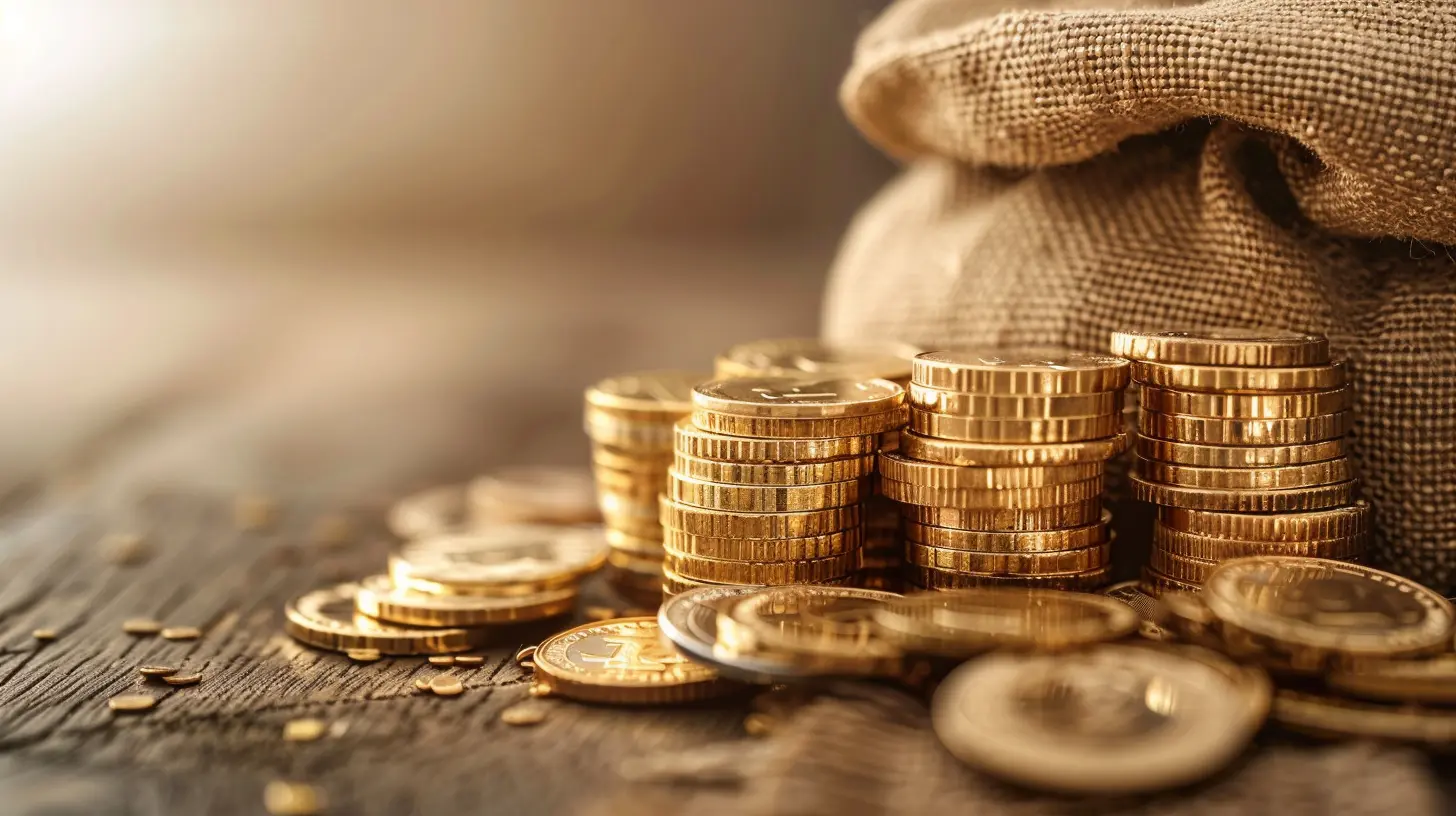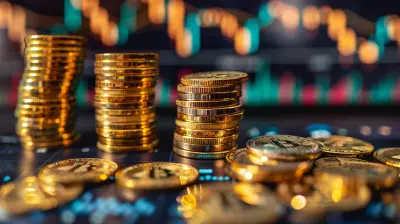Is Gold Still Relevant in the Modern Economy?
2 September 2025
Let’s face it—when most people think of gold, they picture treasure chests, jewelry, or maybe even a James Bond villain hoarding bars in a secret vault. But here’s the million-dollar question: Is gold still important today, or is it just riding on centuries of shiny hype?
The modern economy is fast, digital, and constantly changing. We've got cryptocurrencies, global stock markets, and central banks printing money like there’s no tomorrow. So, where does that leave gold?
Buckle up, because we're diving deep into whether gold holds up in today’s world or if it’s just a shiny relic of the past.
🌟 A Glimpse Into Gold's Unearthly Reputation
Gold has been around for ages—literally thousands of years. From ancient Egyptians to medieval kings, everyone wanted a piece. Why? Because gold has always been a symbol of wealth, power, and security.But this isn’t just about history class.
Let’s look at why gold earned that status:
- It doesn’t corrode or tarnish
- It’s rare but not too rare
- It’s easy to work with
- And hey, it looks good
For centuries, gold was used to back currencies. Remember the term gold standard? That meant paper money could be exchanged for a fixed amount of gold. Sound stable? It was—until the world decided to go off that standard around the 1970s. Since then, things have changed—big time.
💼 Gold vs. The Digital Age: Can Old School Compete?
Let’s be real: We’re living in a tech-driven era. We've got PayPal, Apple Pay, Bitcoin, and the rise of decentralized finance. So how does a heavy, physical metal like gold stay relevant?Funny enough, it still does. Here’s how:
1. A Hedge Against Inflation
Inflation is that annoying situation where your dollar buys less tomorrow than it did today. When central banks print too much money (yeah, we're looking at you, quantitative easing), the value of currency can drop.Gold doesn’t suffer from inflation the same way. You can’t just "print" more gold. It has to be mined, refined, and processed. Many investors see it as a safe place to park their money when the economy feels shaky.
Think of it like this: If cash is a sandcastle at high tide, gold is a big boulder—harder to wash away.
2. Store of Value: The OG Cryptocurrency?
Before Bitcoin, gold was the go-to for people looking to escape the volatility of fiat currencies. Bitcoin fans even call it “digital gold.”Why? Because both:
- Aren't tied to governments
- Have limited supply
- Are considered secure long-term assets
But let’s not go overboard—gold has physical form, and it's been tested for millennia. Crypto? Still finding its feet in many ways.
3. Diversification Darling in Investment Portfolios
Ask any financial advisor, and they’ll say the same thing: “Don’t put all your eggs in one basket.”Gold is the golden goose when it comes to diversification. It often behaves differently than stocks and bonds. So when markets crash, gold tends to hold—sometimes even gain—in value.
During crises like the 2008 financial meltdown or the COVID-19 pandemic, gold prices spiked. That wasn’t a coincidence. That was investors running to safety.
🏦 Central Banks Still Love Gold — And That Says A Lot
Here’s something that might surprise you: Central banks across the globe still stockpile gold. We’re talking tons of it—literally.Why would institutions that understand the economy better than anyone hoard something “outdated”?
Because it works.
Gold provides:
- Liquidity during crises
- Confidence to markets
- A hedge against economic instability
China, Russia, and India have all increased their gold reserves in recent years. That’s not just nostalgia—it’s strategy.
📈 Gold Price Trends: Still Shining Bright?
Let’s put some numbers out there. Gold isn’t just sitting pretty—it’s been making noise.- In the early 2000s, gold was around $300/oz.
- By 2011, it hit nearly $1,900/oz (thanks to the global recession).
- In 2020, amid pandemic chaos? It soared past $2,000/oz.
Sure, prices fluctuate. But there’s a clear upward trend driven by uncertainty, inflation fears, and global tensions.
Bottom line: When the world freaks out, gold smiles.
💡 What About Industrial Use? Is Gold Just For Investing?
Great question. You might think gold is just sitting in vaults or around necks. But it also has some pretty cool industrial uses.Gold is:
- A stellar conductor of electricity
- Resistant to corrosion
- Extremely malleable
That means it’s used in:
- Electronics (smartphones, computers)
- Medicine (treatments, diagnostics)
- Aerospace (think satellites and space tech)
Pretty high-tech for an "old" resource, right?
🤖 Cryptocurrencies vs. Gold: Battle of the Safe Havens
We can’t talk about gold in a modern economy without addressing the elephant—or should we say, the blockchain—in the room: crypto.Bitcoin fans argue it’s better than gold because it’s easy to transfer, hard to counterfeit, and has a fixed supply. And sure, there’s definitely a case to be made.
But what happens when there’s an internet blackout? Or government crackdowns? Or a crash in crypto prices?
Gold doesn’t rely on technology. It exists. In your hand. Tangible and timeless. It may not be the flashiest option, but when it comes to slow-and-steady security, it’s still the reigning champ.
🌍 The Geopolitical Angle: Why Gold Still Holds Sway
Let’s not ignore the political factors. When international tensions rise, gold demand often follows.Why?
Simple: It’s a neutral asset. It doesn’t "belong" to any one country or political group.
When there's war, sanctions, or diplomatic drama, investors often rush to gold. It becomes a sort of financial Switzerland—neutral, trustworthy, and above the fray.
🛠️ Is Gold Changing Shape? Welcome to the Digital Gold Era
Just when you think gold couldn’t get any more modern—it goes digital.That’s right. Now you can invest in gold-backed ETFs, digital tokens, and even fractional ownership models. No need to dig a hole and bury your coins in the backyard.
Technology is making gold more accessible than ever. You can own a piece of a gold bar without ever touching it. Pretty wild, right?
This new hybrid model is blending the best of both worlds: gold’s stability + tech’s convenience.
🧠 So… Is Gold Still Relevant In The Modern Economy?
Let’s wrap this up with a look at the big picture.Gold may not generate returns like stocks. It doesn’t have yield like bonds. And it’s not as trendy as cryptocurrencies.
But relevance? Oh yeah, it's still got that in spades.
Gold remains:
- A trustworthy hedge in uncertain economic times
- A tool of diversification in smart portfolios
- A favorite asset of central banks
- A globally recognized store of value
- An industrial workhorse in tech and health sectors
In our modern, hyper-connected, and often unpredictable world, gold is like that seasoned sailor who’s weathered every storm. It might not sail the fastest ship, but it gets you to shore when the waters get rough.
So yeah—gold still holds up. Maybe now more than ever.
⚖️ Should You Invest in Gold Today?
If you're building a modern portfolio and want a bit of safety? Gold makes sense.But don’t go all in. Think of it like seasoning in a dish—too much can overpower everything else. A sprinkle of gold (say, 5-10% of your assets) can add balance without skewing your strategy.
And with all the new ways to invest—from bars and coins to digital platforms—you’ve got more options than ever.
So, is gold still relevant? You bet your bullion it is.
all images in this post were generated using AI tools
Category:
Gold InvestmentAuthor:

Audrey Bellamy
Discussion
rate this article
1 comments
Zephyra McCracken
In an era dominated by cryptocurrencies and digital currencies, gold's timeless allure lies in its intrinsic value and historical stability. While not a currency in the traditional sense, it symbolizes economic resilience. Its relevance today may be less about utility and more about our collective trust in tangible assets.
September 14, 2025 at 10:41 AM

Audrey Bellamy
Thank you for your insightful comment! Indeed, gold's intrinsic value and historical stability make it a unique asset in today's digital economy, reinforcing its role as a symbol of economic resilience.


